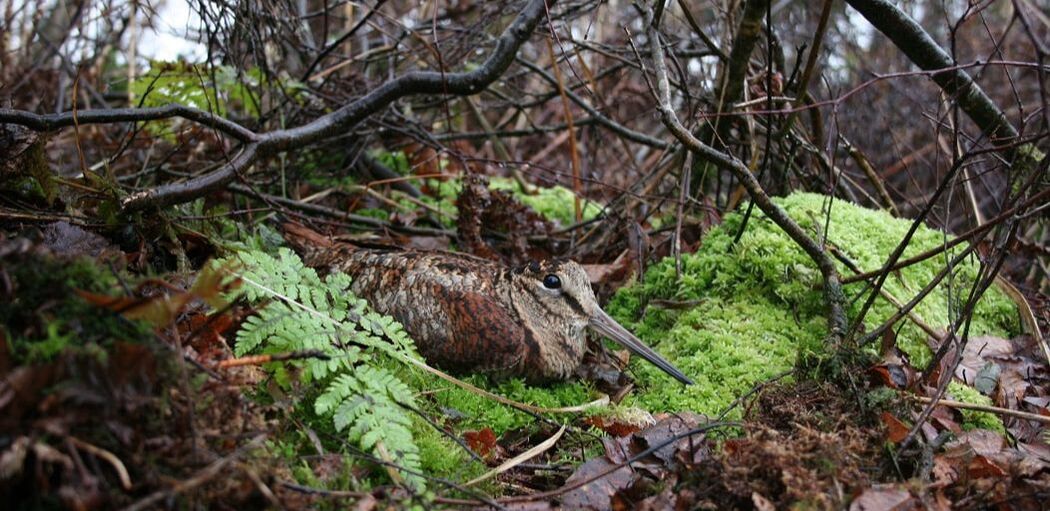|
Freezing winds and widespread snow are expected to push birds eastward into Wales this week. Hundreds of Woodcocks were found in Yorkshire and Northumberland on Sunday ahead of the cold conditions, including many washed up dead on the tideline. Many have evacuated Norway, with large numbers reported to have died along the coast at Stavanger, and doubtless others will have perished on the journey across the North Sea. The harsh weather will add stress to some birds that are already struggling as a result of avian influenza. Wading birds have been found dead in the Waddensee, Europe’s largest wetland, and authorities have confirmed the disease caused the death of 750 Great White and Pink-backed Pelicans at a nesting colony in Senegal.
On a walk from home on Sunday, it was evident that Redwing numbers had increased overnight, with birds feeding among the woodland leaf-litter, which has not yet frozen. A Firecrest dropped onto a bare branch at eye-level, although this one has been in Gloddaeth Woods above Penrhyn Bay all winter. Look out for Bramblings and Blackcaps at garden feeders this week, and keep water unfrozen if you can. Snow Buntings are on the Great Orme and at Holyhead’s Soldier’s Point, and Water Pipits at Glanwydden and Llandudno’s West Shore. A Cattle Egret and Green Sandpiper remain on a flooded field north of Valley on Anglesey and other long-stayers include two Black Redstarts at Amlwch, Iceland Gull and Scaup at Rhyl’s Brickfield Pond, and a Long-tailed Duck in Foryd Bay. A Tundra Bean Goose was feeding among Pink-footed Geese at Ridleywood in the Dee Valley on Monday, and in recent days there has been a small flock of Pale-bellied Brent Geese on the Clwyd estuary, two Great White Egrets in the Cefni Valley and over 20 Velvet Scoters off Shell Island, near Llanbedr.
0 Comments
Leave a Reply. |
Bird notesA weekly update of bird sightings and news from North Wales, published in The Daily Post every Thursday. Archives
July 2024
Categories |

 RSS Feed
RSS Feed
